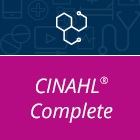Nursing & Health Sciences Research Journal
Abstract
Introduction: Primary stroke center educational requirements necessitate education of those healthcare professionals coming in contact with patients who have suffered a stroke. Clinical partners (CPs) are integral team members who often assist these patients with activities of daily living. A potential method of education is computer-based training (CBT). The purpose of this study was to measure the efficacy of CBT and clinical partners’ satisfaction with CBT as an educational tool.
Methods: CBT was implemented as a cost-effective and efficient method of providing CPs with the education necessary to care for patients suffering a stroke. Additionally, an evaluation research approach was used with a single group using a pre-post quasi-experimental design. Also, a survey assessing CPs satisfaction of the education tool was conducted.
Results: Twenty-six CPs completed the CBT training along with the pre- and post-knowledge tests. Data analysis, using a paired t-test, revealed the mean test score increased, from 77.6 + 9.56 pre-test to 89.3 + 7.09 post-test (t = 2.10, df = 18, p = .00013). For the secondary objective, 11 CPs completed the satisfaction survey which showed that only 3(27%) would have preferred a live session.
Conclusion: The study results suggest that CBT is an effective tool in the education of clinical partners on the care of the patient suffering a stroke. In addition, it was favored over a live session, suggesting that innovative tools such as e-learning should be considered when education is required in a busy clinical setting
Recommended Citation
Cheong, S. (2018). Computer-based Stroke Training Effects on Clinical Partner Knowledge Acquisition and Satisfaction. Nursing & Health Sciences Research Journal, 1(1), 26-31. https://doi.org/10.55481/2578-3750.1012
Creative Commons License

This work is licensed under a Creative Commons Attribution-NonCommercial-No Derivative Works 4.0 International License.


